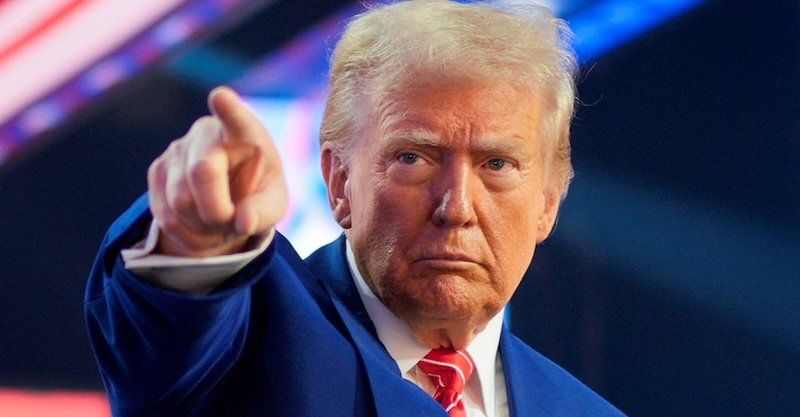President Donald Trump has managed, within a few short months, to force a number of traditionally powerful "elite institutions" to capitulate to his personal demands in a sort of "Great Grovel" — and it turns out there is a method to how Trump has accomplished all this, said Politico reporters in an analysis published on Monday.
From getting tech billionaires that long criticized him to donate to his inaugural fund, to forcing law firms that represented anti-Trump clients to change their policies, to getting news networks to settle MAGA lawsuits experts dismissed as frivolous, to getting prestigious universities that hosted protests he didn't like to crack down on students, Trump has accomplished obedience from a number of groups that frustrated him in his last term.
This obedience hasn't been universal — many of these institutions are fighting back and there is internal fury within the organizations that capitulated — but it's no accident Trump is having more luck this time around, Politico staff argued.
ALSO READ: 'Scared and sick': Trump voters struggle to deal with tariff reality set to go into effect
Part of it is that these institutions, being large and dependent on federal funding, have many vulnerabilities for Trump to exploit, and part of it is that their higher-ups, despite disagreement from the rank and file, hope that by buying off Trump's anger they can return to business as usual. But there's also a deeper reason why these organizations haven't been able to mount effective resistance: Trump is deliberately going after them one at a time.
"While Trump enjoys a wide array of support, his targets typically have found themselves alone and isolated," said the report. "There has been no effective effort so far by universities to work in concert to halt Trump’s actions at Columbia or other campuses. Kicking the Associated Press out of the White House pool prompted howls by other reporters, but most news organizations basically kept on with their ordinary business. Major law firms haven’t released a joint statement condemning Trump’s moves against their industry colleagues."
The result, said one person who works at Disney, is “There’s a giant collective action problem because everybody’s looking out for number one.”
And Mary Spooner, a former attorney with Paul Weiss, had a similar assessment: “If law firms and businesses and others within the private sector choose not to stand up and front a resistance to this power that [Trump] is claiming, but which the Constitution does not give him, then he will have that power. But it becomes much, much harder to resist when individual organizations and institutions and corporations are forced to resist alone.”
Leave a Comment
Related Post
